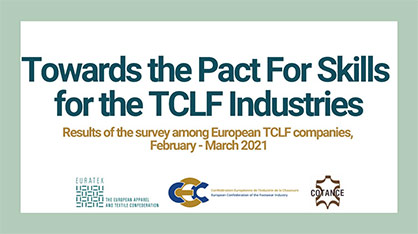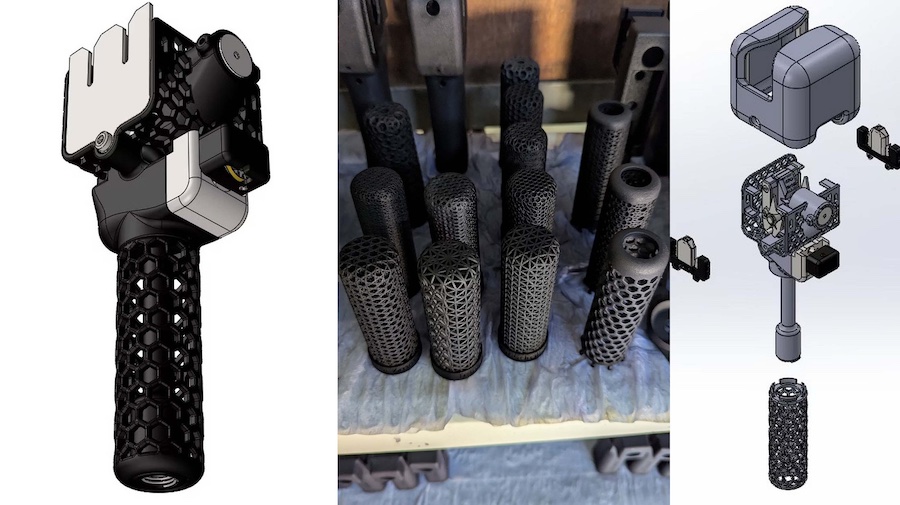#Associations
Which skills companies need from their workforce
Over 150 companies replied to the survey out of which 53 represented Textile and Clothing sectors.
The majority of respondents finds that skills related to process and production are still lacking, and they will still be important in the years to come. 2 out of 3 respondents already up/reskill their workforce for digital skills, and 35% provide up/reskilling activities for green skills.
How could the EU help companies in up/reskilling the workforce Respondents prioritise financial support (as the most effective mechanism to increase employees’ training), collaboration – both on the level of industry stakeholders as well as collaboration with education providers and policy makers – and support in providing better offer and exchange of knowledge as key actions that are critical to ensure appropriate approach towards the up/reskilling initiatives in the industries.
Respondents as one of the main challenges that restrained them from using external/public resources for up/reskilling pointed out the lack of knowledge and information about the offer, lack of programmes for the industry and challenging list of conditions that often left them unable to use this kind of supporting measures.

Key findings from the survey:
• In terms of currect skills needs of companies, process and production skills were selected by 79% of respondents, followed closely by Digital skills needs (61%) and Green skills (35%);
• 70% of respondents implement currently up/reskilling activities to meet process and production skills needs, and 88% foresee them as important or very important in the next 5 years;
• 61 % of respondents implement currently up/reskilling activities to meet?digital skills needs, and 86% foresee them as important?or very important in the next 5 years;
• 40% of respondents implement currently up/reskilling activities to meet?green skills needs, and 65% foresee them as important or very important in the next 5 years;
• Each year, less than 24% of workers take part in up/reskilling activities, according to of 77% respondents;
• Time-related constraints, as well as financial costs, are the key obstacles to conduct training, implement mentoring and apprenticeship programmes. 42% highlighted also Lack of adequate courses, facilities, or teachers as a problem for general training activities, while for both mentoring and apprenticeship Lack of internal human resources to supervise is an issue;
• 56% of respondents admit to using a mix of financial sources coming from company and external funding schemes (in the form of financial incentives, collaboration with education providers, and contribution to Social Security systems or tax reliefs for training activities / R&D);
• The EC measures for the re/upskilling activities – the key action selected by the respondents is focused on Building strong skills partnerships among all relevant stakeholders (83% respondents selected important or very important).














